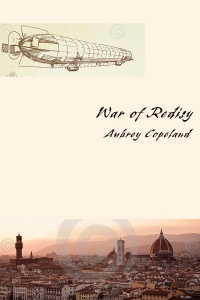So today, I wanted to talk a little bit about speculative fiction versus non-speculative fiction. At BYU, there is a certain Creative Writing professor that will not accept a story that is speculative fiction at all. Period. Instant F! This has been on my mind for some time, so I figured I’d rant a bit about why speculative fiction is indeed a healthy form of lit to read. Some people, myself strongly excluded, think that fantasy, science fiction, horror, and other speculative fiction genres should never be written or read.
A lot of these people are in academia. However, I am not in academia and still I believe that there’s nothing wrong with any of the above genres (and there’s more genres than just those I listed). So, what exactly am I trying to do? I’m trying to make it clear that the argument that “proper literature” (otherwise known as mainstream fiction) is the only type of lit that should be written or read is a bad argument to say the least.
To start off, let’s say you wrote a fantasy novel, and it got published by Tor Publishing. To do that, you’d need to have known the background of all your characters (like in any novel), and you’d need to know your world’s government, religions, magic systems, races, orders of knights or wizards, and of course, the geography and history of that world. Yes, your fantasy novel is out of your own imagination, but you still did research by figuring out how the world works. In creating this, you’ve opened up your imagination, and that side of your brain is healthier for creating something than it would have if you’d just written the next Pride and Prejudice.
Now let’s look at it from a reader’s perspective. If someone read a fantasy novel, or steampunk, or horror, or whatever, they have opened up their imagination to a whole new world. They get to experience something great, and get to ask themselves “What if we could do that?” Of course, they couldn’t really conjure magic or something like that, but that’s not even the point. They can open their mind more easily to what could be.
If you are of the school of thought that fantasy and other speculative fiction genres shouldn’t be written, think about what the stories below all have in common.
- Homer (The Iliad and The Odyssey).
- Gilgamesh.
- Dante’s Inferno.
- Beowulf.
- The Legend of King Arthur.
So what do all these stories have in common? They all contain myths and legends. But let’s do a bit of logical thinking here. Back when these stories were relatively new, this is how stories were told. If not for “speculative” fiction, the mainstream fiction genre would not exist. Just think about that for a second. The mainstream fiction genre evolved over time, as has the fantasy genre, the romance genre, and other genres. New influences crept in, and they became what they are today. But where do they have their roots? Obviously, the stories I mentioned above are the roots of some genres. After all, Beowulf was a major influence in the works of J.R.R. Tolkein, who many people consider to be the grandfather of the fantasy genre.
My point? If we are to abandon the speculative fiction genres that are out there, we’d also need to abandon our literary roots. And that, my people, is completely unacceptable. To abandon our roots, is to forget where we came from and to forget lessons we’ve already learned. And to abandon speculative fiction as a whole would also be damaging to society (in some subtle ways). That’s because speculative fiction allows people to ask the question “What if?” What if we can go to the moon? What if this happened? “What if” is a powerful question. Maybe I am wrong, and maybe speculative fiction is damaging to society, rather than helping it. But then again, maybe my crap has come to life after being flushed down the toilet (not likely)!
I am a strong believer that “proper” literature is okay, but I’m also a strong believer that speculative fiction is also healthy for us to read. I am 25 years old, and therefore a fully grown adult, yet I love a fairytale as much as the next 8-year-old. That should be enough to squelch any debate that there is nothing wrong with speculative fiction.

